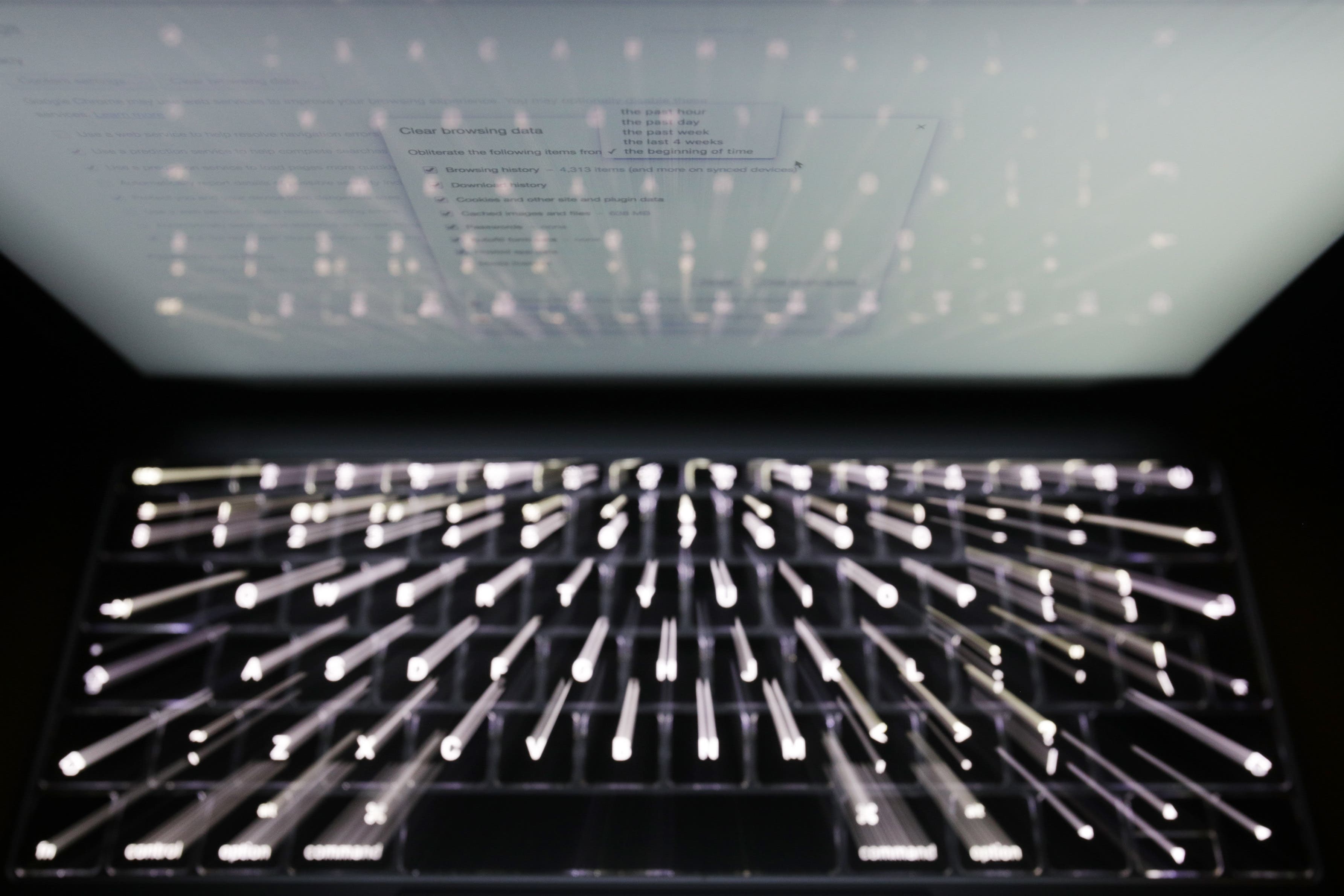Blue-light filtering glasses probably make no difference to eye strain – study
Researchers looked at the effects of the lenses compared with non-blue-light filtering lenses for improving visual performance.

Glasses that filter blue light from screens probably make no difference to eye strain, eye health or sleep quality, a new study suggests.
Blue-light filtering lenses, also known as blue-light blocking spectacles, have been increasingly prescribed or recommended, often by optometrists, since the early 2000s, the researchers say.
They looked at the effects of the lenses compared with non-blue-light filtering lenses for improving visual performance, providing protection to the retina – the light-sensitive tissue at the back of the eye – and improving sleep quality.
The study found there may be no short-term advantages with using the lenses to reduce visual fatigue associated with computer use.
We found there may be no short-term advantages with using blue-light filtering spectacle lenses to reduce visual fatigue associated with computer use, compared to non-blue-light filtering lenses
They analysed data from 17 studies from across six countries, with the numbers of people in individual studies ranging from five to 156.
The period of time over which the lenses were assessed ranged from less than one day to five weeks.
Senior author of the review, associate professor Laura Downie at the University of Melbourne, Australia, said: “We found there may be no short-term advantages with using blue-light filtering spectacle lenses to reduce visual fatigue associated with computer use, compared to non-blue-light filtering lenses.
“It is also currently unclear whether these lenses affect vision quality or sleep-related outcomes, and no conclusions could be drawn about any potential effects on retinal health in the longer term.
“People should be aware of these findings when deciding whether to purchase these spectacles.”
However, the researchers say the quality and duration of the studies needs to be considered, she said.
The first author of the review, Dr Sumeer Singh, a postdoctoral research fellow in the Downie Laboratory at the University of Melbourne, said: “High-quality, large clinical research studies with longer follow-up in more diverse populations are still required to ascertain more clearly the potential effects of blue-light filtering spectacle lenses on visual performance, sleep and eye health.
“They should examine whether efficacy and safety outcomes vary between different groups of people and using different types of lenses.”
How blue-light filtering lenses might be able to help with eye strain, sleep and protecting the retina is unclear.
The researchers suggest one basis for the claims may be that modern digital devices such as computers and smart phones emit more blue light than traditional lighting sources, and are being used for longer, and closer to bedtime.
Dr Singh said: “The amount of blue light our eyes receive from artificial sources, such as computer screens, is about a thousandth of what we get from natural daylight.
“It’s also worth bearing in mind that blue-light filtering lenses typically filter out about 10-25% of blue light, depending on the specific product.
“Filtering out higher levels of blue light would require the lenses to have an obvious amber tint, which would have a substantial effect on colour perception.”
The study did not find any consistent reports of adverse side effects from using blue-light filtering lenses.
Any effects tended to be mild, infrequent and temporary, and included discomfort wearing the spectacles, headaches and lower mood.
It is suggested that these were likely to be related to wearing the glasses, as similar effects were reported with non-blue-light filtering lenses.
Prof Downie said: “Over the past few years, there has been substantial debate about whether blue-light filtering spectacle lenses have merit in ophthalmic practice.”
She added: “The outcomes of our review, based on the current, best available evidence, show that the evidence is inconclusive and uncertain for these claims.
“Our findings do not support the prescription of blue-light filtering lenses to the general population.
“These results are relevant to a broad range of stakeholders, including eye care professionals, patients, researchers and the broader community.”
The study, published in the Cochrane Database of Systematic Reviews, was led by researchers at the University of Melbourne in collaboration with colleagues at City, University of London and Monash University in Melbourne.
Russell Foster, professor of circadian neuroscience at the University of Oxford, said that “although the available data indicate that blue-light filtering lenses are not effective, we need better studies to make this statement definitive”.
Bookmark popover
Removed from bookmarks